How to Help a Hoarder Declutter
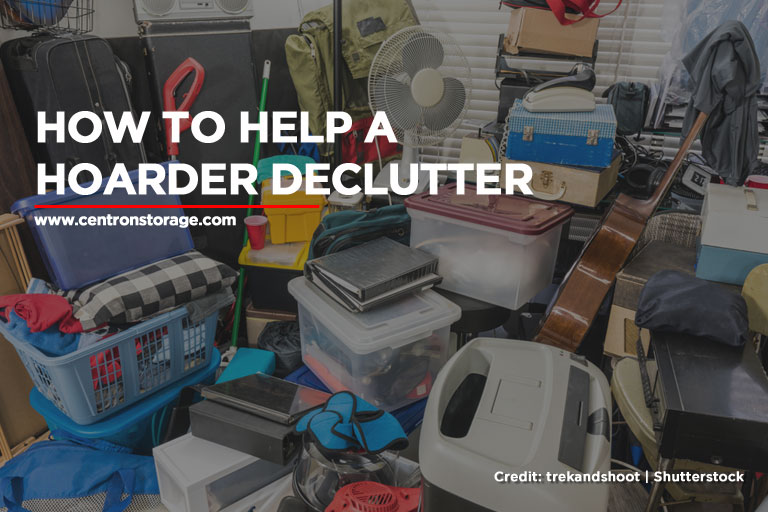
Hoarding is defined as a “psychological disorder characterized by persistent difficulty discarding or eliminating possessions.” People with hoarding disorder excessively save items that other people may consider worthless. Their persistent refusal to get rid of possessions often leads to clutter that gets in their way of using living or work spaces. They even experience so much distress just at the thought of having to discard items.
Do you suspect that someone in your family or group of friends is a hoarder? If you see a family member or friend struggling with getting rid of possessions, living in an excessively cluttered space, and experiencing distress when asked to throw items away, reach out and offer help.
However, hoarding is complex, so you need to ease your way into convincing your friend or relative to declutter their home or living space. Spend valuable time with them by learning how to help them clean and organize their space slowly but surely.
Help for Hoarders
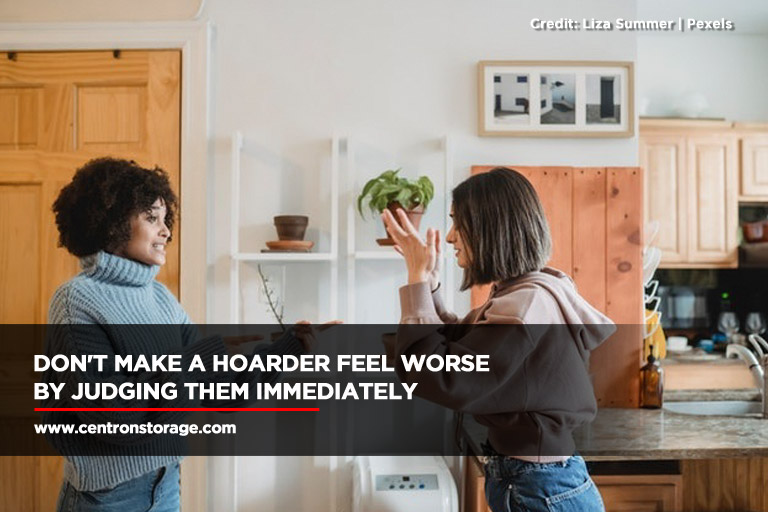
The first step to helping a hoarder is by understanding them. A hoarding problem manifests in the following signs and symptoms:
- Experiencing mild to severe anxiety about getting rid of anything
- Repeatedly adding to the hoard without recognizing there is a problem
- Rooms in the home that can no longer be used for their intended purpose due to clutter
- An abundance of possessions that negatively impact one’s safety, health, or hygiene
When you see those signs in a family member or a friend, approach them gently and listen to them talk about their struggle without judgment. It’s especially hard these days when we’re in lockdown. Support is even harder to find during the pandemic because cleaning programs are prohibited from doing in-person visits, so it’s important that you are there to support them.
Be sure to let them know that you are there to help and remain patient especially if your friend is in denial of their hoarding problem. Start a discussion with them and listen to them talk about their problem. This will help you understand the logic behind their behaviour.
A hoarding problem can be extremely difficult to deal with. Hoarders are advised to seek professional therapy in order to deal with their psychological issues and, at the same time, ask for practical assistance. You can help with the latter by offering to help declutter and organize their home or living space. This way, they feel that they have support while they take the necessary steps to address their problem.
Decluttering for Hoarders: Tips and Tricks
There are many decluttering tips that you can see online. Don’t know which ones work? Start with a simple plan of action that’s doable enough for you and your loved one to follow through:
1.Begin, Pronto!
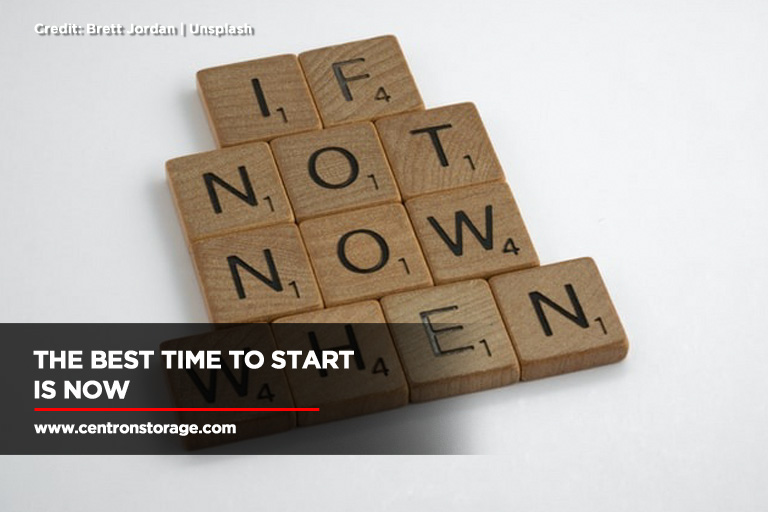
Do not put off until tomorrow what you can do today. The bigger the hoard, the uglier the process — but it’s going to be messy anyway. What’s important is you can prompt your beloved hoarder to declutter their home or space immediately.
2.Stop Adding to the Clutter
This can be extremely difficult, but you need to help your friend stop bringing more to the clutter. There should be no more purchases since it will only make decluttering a waste of time if you’re still buying items you don’t need.
3.Break Down The Tasks
There is so much anxiety that comes with decluttering. When you’ve been hoarding items for a long time, the thought of going through all the items can be stressful and overwhelming.
Your friend doesn’t have to finish everything all at once. Start small and take your time to break down your to-dos into small, manageable tasks that you can perform one at a time. You can even agree who’s doing which task, and which ones you need to do together. Like, taking out gargantuan statues and sofas with their insides turned out.
4.Take Out the Obvious Trash
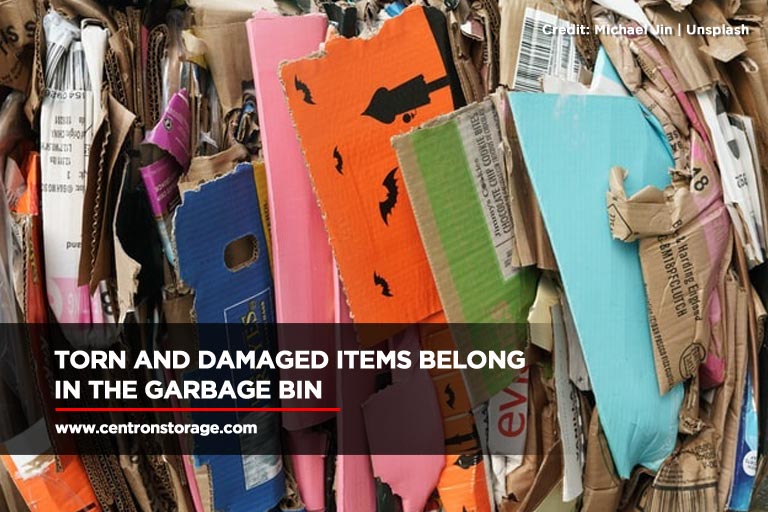
Hoarders have a hard time choosing which ones of their stacks of unused items to keep, but that’s why you’re there — to shed light on which ones obviously need to go to the bin.
Carry a trash bag, go around the clutter, and start picking wrappers, empty bottles, wilted leaves. Have a separate bag for trash that you can recycle. Wear masks, gloves, and other protective equipment just in case a dead animal turns up underneath the pile.
Although this isn’t detailed cleaning per se, you now have relatively less of the hoard to worry about.
5.Agree on a Decluttering Plan
Once all the trash is thrown out, it’s easier for your friend to see how much clutter they really have. Having and agreeing on a decluttering plan clarifies what you need to do and how you ought to do it. Knowing this lessens the anxiety hoarders often feel when they have to decide which items they have to let go of.
Your plan should:
- Include a decluttering checklist for hoarders
- Incorporate goal setting to help you stay focused (e.g. By this week, the living room should be 50% free from clutter.)
- Include storage options such as basement, garage, or renting a self-storage unit, especially if the clutter takes up living or working space
The hoarder will find items that they certainly cannot let go of. Be the voice of reason in deciding whether they get to keep it and where they keep it. While you can make suggestions, remember that the hoarder should be the one to make the final decision.
6.Work Your Way Down
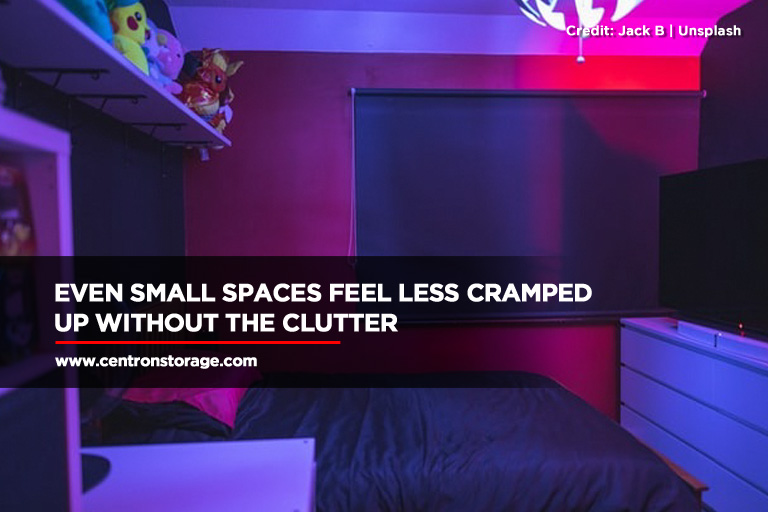
Start from the biggest to the simplest. When you see results from completing each task, you feel a sense of accomplishment and you are motivated to keep moving. Decluttering can be personal, so there is no definite starting point. It is up to the hoarder to pick which area they want to start with.
That being said, it is not advisable to start with the room with the most clutter since it can tire you out faster. You can time yourself and declutter in short bursts so it feels less overwhelming and your brain can focus on finishing this one particular task within a given time frame.
7.Make It Fun
Decluttering is work. It can be very taxing. Make it fun by playing music while you declutter. You can also reward yourselves with food or a quick movie break after a list item is done.
Everyone has a different idea of “fun”, so feel free to get creative. Ask for your friend’s input so you can make decluttering time more enjoyable.
You Can’t Hurry Decluttering
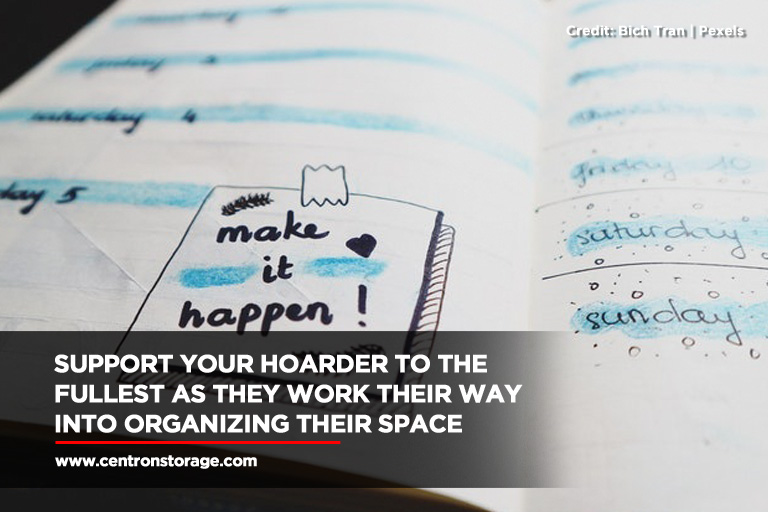
Remember that a hoarder does not become a hoarder overnight. It takes a long time to accumulate enough items to disrupt the living or working space. Before decluttering, ease them into the process and don’t rush them into doing it.
It’s also important to know that they might relapse. Hoarding is a serious clinical condition, and your family or friend may go through the same thing again. Remain patient with them. Most importantly, when they’re ready to accept help, let them decide how to go about it. Make it clear that they will always have the final say in the matter.
Decluttering somebody’s “hoard” doesn’t mean you need to throw everything away. Any prized possessions that no longer fit in their home? Consider renting a unit at Centron Self Storage. Our North York facilities are under 24/7 surveillance and climate-controlled to keep your belongings in safe and good condition all year round. Call (416) 739-0000 now.
